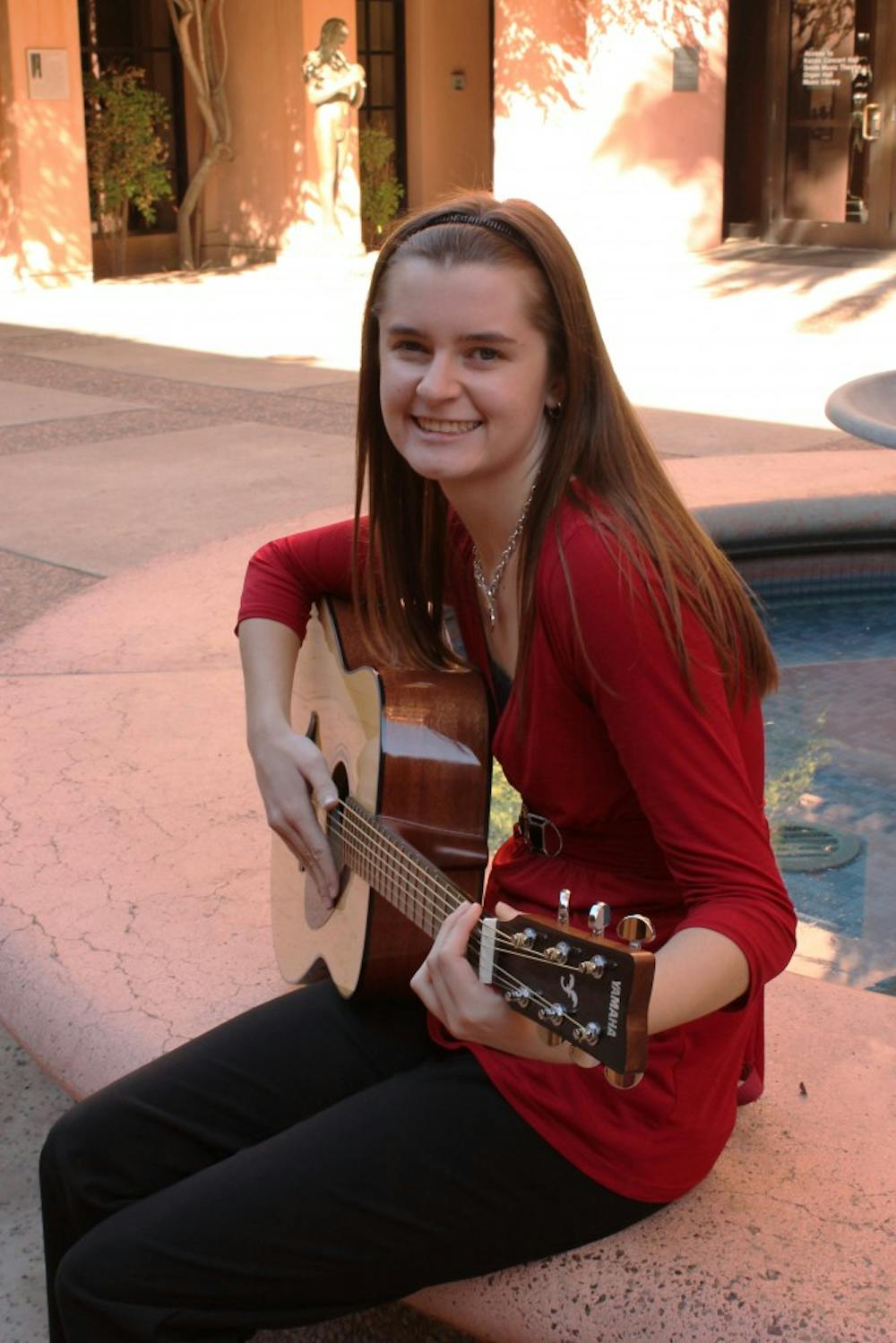 Shelbe Olson, music therapy major and sophomore, practices her guitar in the music building at ASU. Olson, along with other music therapy majors, are required to learn the basics of guitar and other musical instruments for their field of study. (Photo by Laura Davis)
Shelbe Olson, music therapy major and sophomore, practices her guitar in the music building at ASU. Olson, along with other music therapy majors, are required to learn the basics of guitar and other musical instruments for their field of study. (Photo by Laura Davis)
ASU’s music therapy major allows students to pursue a degree that combines music with psychology.
The music therapy major was established in 1974 and is Arizona’s only accredited music therapy program.
Professor Barbara Crowe said music therapy is an art and a science.
“Music therapy is a mental health, special education profession where we engage clients in active music-making to help achieve non-musical goals,” she said.
Children with cognitive and developmental disabilities, such as autism, often respond well to music therapy. Music therapists often use song to teach social behavior, such as manners, to their young clients.
Crowe said the therapists use music to help their clients improve social behavior, emotional awareness and cognitive growth.
She believes music therapy is important because it gives clientele a different form in which they can express themselves, Crowe said.
“I think there are many clients and individuals, children in particular, that don’t have the language to talk about their meaning,” she said. “Music is a more direct expression of belonging, of emotion, of association, that kind of thing.”
Crowe said her work with cognitively impaired children caused her to pursue a career in music therapy.
“I found that even though they were very impaired, both physically and cognitively, they just responded to music, and (it) just gave them so much delight,” she said. “I found them much easier and much more rewarding to work with than the normal kiddos.”
ASU’s highly esteemed School of Music is what makes the music therapy program unique, she said.
“We are a top-rated music school,” she said. “It’s all very important because the core of music therapy is music. It’s not that music magically cures people of anything. But it is how to use music, and the elements that make it a really good tool for engaging in things that will make a difference in people’s lives.”
According to the U.S. College Ranking website, ASU's music school was 19th in the nation in 2010.
Music therapy sophomore Shelbe Olson said her own visual impairment is a reason she chose to pursue a career in music.
“Growing up visually impaired, I found something to be involved in,” she said.
Olson said her major was challenging.
“The music therapy program is about three degrees in one,” she said.
Because of the breadth of their craft, music therapy majors not only learn to play instruments like other music majors, but are required to take an assortment of psychology classes and engage in hands-on practice in the field.
Olson said her love for music is one reason why she chose music therapy.
“Music, for me, has meant the world,” she said. “It’s given me a place in the world."
Olson discovered her desire for music therapy through volunteer work, she said. “I started volunteer work with children with special needs, and I brought my clarinet in to play for them one day, and my boss said, ‘You should be a music therapist,'” she said. “It kinda stuck.”
Olson chose ASU because of its prestige.
“(ASU is) one of the best music therapy programs in the country,” she said.
Music therapist Joel de la Houssaye, an ASU alumnus, chose his career because he wanted to help people with his gifts.
“I wanted to find a meaningful way to help people using music,” he said.
You can reach the reporter at laura.m.davis@asu.edu or follow her on Twitter @LauraChelle




